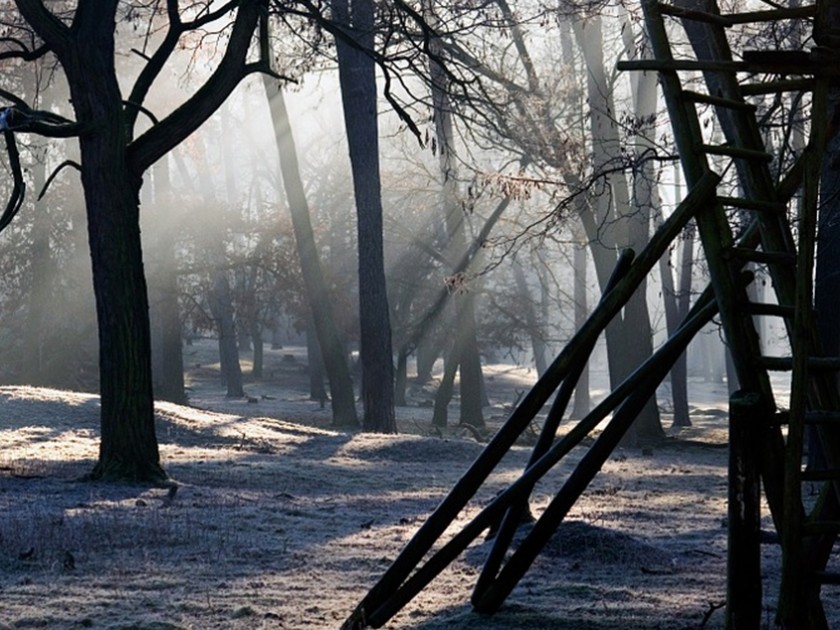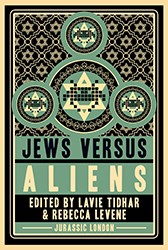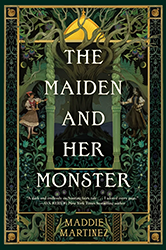
Earlier this week, Noah Beit-Aharon exposed the Biblical inspirations behind his epic fantasy series, Godserfs. With the release of Among the Fallen, the second volume in the series, Noah is guest blogging for the Jewish Book Council all week as part of the Visiting Scribe series here on The ProsenPeople.
There have been many intelligent responses to Michael Weingrad’s 2010 essay, “Why There Is No Jewish Narnia.” This should come as no surprise— it’s a provocative piece, at once insightful and maddening, falsifiable in its particulars and yet, on a basic level, essentially true. As many have pointed out, Weingrad’s essay fails to provide a satisfactory answer to the question of what kind of book would count as, in his words, “profoundly Jewish in the way that…The Lion, the Witch, and the Wardrobe is Christian.” Wouldn’t the works of Isaac Bashevis Singer count? Weingrad’s very narrow definition of fantasy seems to exclude magical realism and other popular fantasy subgenres, while classifying only high fantasy and epic fantasy — those two subgenres most dominated by the influence of Lewis and Tolkien — as valid.
But even with the deck thus stacked in Christianity’s favor, Weingrad’s main question remains worthwhile: is the backward-looking sword-and-sorcery stuff that so many of us grew up with so inherently Christian that it’s impossible to produce great “profoundly Jewish” works within that context? In short, is a Jewish Narnia impossible?
In order to answer that question, I think we must first ask ourselves what makes the original Narnia so Christian. That may seem silly, but in this case I think stating the obvious is worthwhile: The Chronicles of Narnia are Christian allegory. Neither Jesus nor Satan nor any ministering angels appear in the novels, except as symbolized by Aslan and the like. I bring this up because Weingrad is very clearly not demanding more Jewish characters in fantasy — he wants a story that feels Jewish in the same way that Lewis’ work feels Christian. As such, it’s worth pointing out that Lewis’ books are not about the trappings of Christian mythology. They’re about its essence.
But if the essence of Christianity can be seen in themes like divine self-sacrifice, original sin, and Satan’s continued rebellion after the fall, what is the essence of Judaism?
I recently picked up Matthew Kressel’s King of Shards, a fun portal fantasy set in a multiverse that drips with Kabalistic theories and other Jewish symbols and trappings. Yet my mind still went back to Mr. Weingrad’s essay while reading, because although the setting and premise of King of Shards are indeed profoundly Jewish, the guts of the story are still those of a classic epic fantasy story: a Quest to Save the World. It was hard not to see there the powerful influence of Tolkien, and of Lewis, on the fantasy genre: even an undeniably Jewish fantasy novel is propelled by a plot that borrows more from the Christian ethos than a Jewish one.
Our founding documents do not deal with the power of humans to redeem the world: only God can redeem the world, and on that front God seems content to wait until the end times. Nor do humans (or demons, for that matter) threaten God’s creation in any serious way — God is the sole Granter of life and death, the Creator of both darkness and light, Master of good and evil.
The Jewish spirit does not worship God and fear the devil. It worships God, and fears God too.
It is notable that in the Torah, God is distinctly not engaged in a struggle for supremacy. It’s not that other gods don’t exist — Tanakh accepts the existence of gods other than our own, but insists that our own God is dominant over them. Even in Exodus, where one might expect some real conflict between the gods of Egypt and the God of Israel, the latter seems to run roughshod over the opposition without any semblance of resistance. But if that sounds undramatic, if you’re wondering how such a dynamic could possibly lend itself to a good fantasy story, then perhaps you should read the Book of Exodus again. There’s plenty of drama! It’s just that the drama of the Torah resides not in the opposition of other divine beings to God, but in the constant struggle between God and the people of Israel.
When I began the Godserfs series with my first book, Silent Hall, my plan was to set the story in a world reminiscent of the Biblical one. I’d always been fascinated by the strange and horrifying world of Tanakh, where tricking one’s brother out of his birthright is okay but accidentally touching the Ark of the Covenant is a death sentence, and I wanted other readers to share my experience of the text in all its disturbing glory. I know that at least with some, I’ve succeeded. I have a friend who receives drashot from her favorite rabbis via email, and she keeps forwarding them to me every time some concept reminds her of my writing.
If one were to go searching for Biblical parallels in my series, one would find them by the ark-full: a Sinai generation made up of dragons, a Leviathan-like primordial plant monster, a godly pursuit as troubling and mysterious as the Bridegroom of Blood story, plus more midrashic references than you could shake a lulav at. The gods in Godserfs are mysterious and frightening, willing to wipe out a population or smite an individual over the pettiest of slights. There are also a whole lot of them, and they are frequently in conflict with each other. I chose to start the story in that polytheistic mindset because Judaism didn’t arise in a vacuum: it developed in reaction to the popular local religions of its day. The characters only start moving toward a monotheistic viewpoint over the course of the first book, when they discover the existence of a God Most High, and look to that god to save them from their divine enemies.
Importantly, the character of God Most High is no Enlightenment deity, omniscient, omnipotent, and omnibenevolent. That god may seem familiar to us, but is completely foreign to the Hebrew Bible. In case we need a reminder, the God in Tanakh kills one of Judah’s sons for masturbating (or perhaps for using the pull-out method), smites Uzzah for having disastrously quick reflexes, tortures Job just to prove a point, punishes Moses for hitting a rock in frustration (and Miriam for criticizing her brother), and sends numerous plagues down upon the people of Israel. He also intentionally allows His people to be enslaved, just so He can show off later by freeing them. The point of Israelite monotheism is not that our God is kinder than Baal, it’s that He’s more powerful, and He’s the one we made a deal with.
The struggle in the Godserf series, as in the Jewish liturgy, is not to resist temptation or overcome the devil. The struggle is for the characters to convince God Most High to take their side and rise to their aid.
I make no claim to have a “Jewish education equivalent to the philological and medievalist backgrounds of the Oxford and Cambridge dons Tolkien and Lewis.” I am neither a Jewish Studies professor nor a yeshiva student. But for those who are interested in my vision of fantasy with a Jewish core, Silent Hall and its sequels will not disappoint. The Jewish Narnia awaits.
Noah Beit-Aharon lives in Waltham, MA, and is a member of Temple Beth Israel in Waltham. The first two installments of his Jewish-inspired epic fantasy series Godserfs, published under the pen name N. S. Dolkart, are available in paperback from Angry Robot Books.



